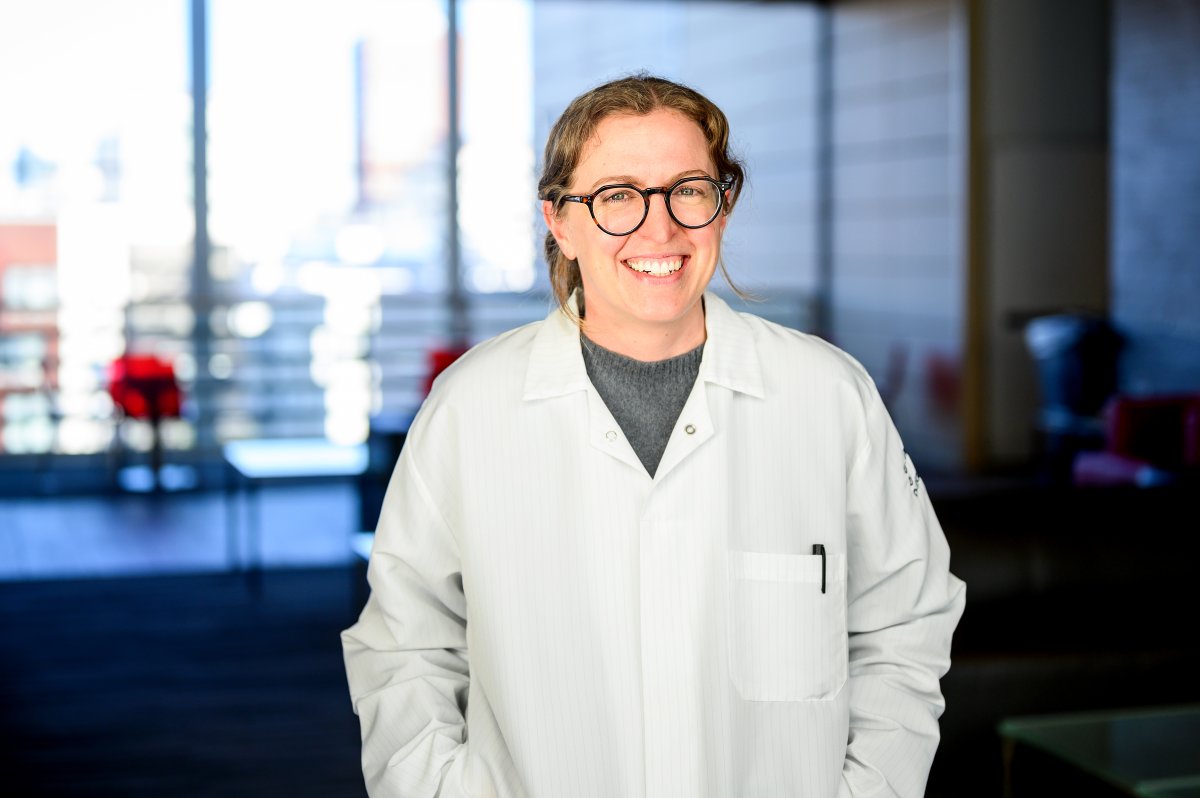Professor Balyn Zaro
Professor Balyn Zaro
Department of Pharmaceutical Chemistry
University of California, San Francisco
Abstract
A Chemical Biology Approach to Innate Immunity
Macrophages regulate how the immune system recognizes self. When a foreign/exhausted cell or pathogen is detected, macrophages engulf and destroy it in a process called phagocytosis. Anti-phagocytic signaling axes, also referred to as ‘don’t eat me’ (DEM) signals, exist between macrophages and other cells. To evade macrophages, healthy cells express DEM signal ligands on their surface. When a DEM ligand engages a DEM receptor on a macrophage, downstream signaling blocks phagocytosis. Four DEM signal ligand- receptor pairs have been discovered, and it is hypothesized that there are others. Dysregulation of DEM signaling has been implicated in cancer, infectious disease, neurodegeneration, and atherosclerosis. In addition to DEM signal ligands, mammalian cells also present ‘eat me’ (EM) ligands, which engage macrophage EM receptors, and are required for phagocytosis. Despite the fundamental role these signals play in basic and disease biology, relatively little is known about the biological mechanisms and consequences of these pathways. Learning to harness and exploit DEM and EM signaling would result in a wave of new biologic discovery in human health and disease. However, highly-selective chemical probes and new specialized chemical proteomic approaches are required. To this end, my lab has developed selective chemical tools and novel proteomic techniques to study macrophage function and host-pathogen interactions. Our new toolkit has lead to discoveries in macrophage function that reveal how we combat disease and may change the way we design immunotherapeutics.
Balyn Zaro
Balyn Zaro, PhD, grew up in California and Connecticut. As an undergraduate researcher at University of Southern California (USC) she studied synthetic methodology and organic chemistry with G.K. Surya Prakash and Nobel laureate George A. Olah. She remained at USC for her PhD studies in chemical biology as the first graduate student in the laboratory of Matthew Pratt, PhD. Her research focused on developing metabolic bioorthogonal chemical reporters to identify and to characterize post-translational modifications of proteins, including glycosylation, acetylation, and ubiquitination. For her postdoctoral studies, she worked in the laboratory of Ben Cravatt, PhD, at Scripps Research Institute in La Jolla, California. There she investigated the metabolism of covalent small molecules using activity-based protein profiling and identified the mechanisms of action of the multiple sclerosis drug Tecfidera® (dimethyl fumarate). She gained additional training with Irving Weissman, MD, at Stanford University School of Medicine in the fields of innate immunity and hematopoiesis before her arrival at UCSF in September 2019.
Hosted by Hannah Lembke
